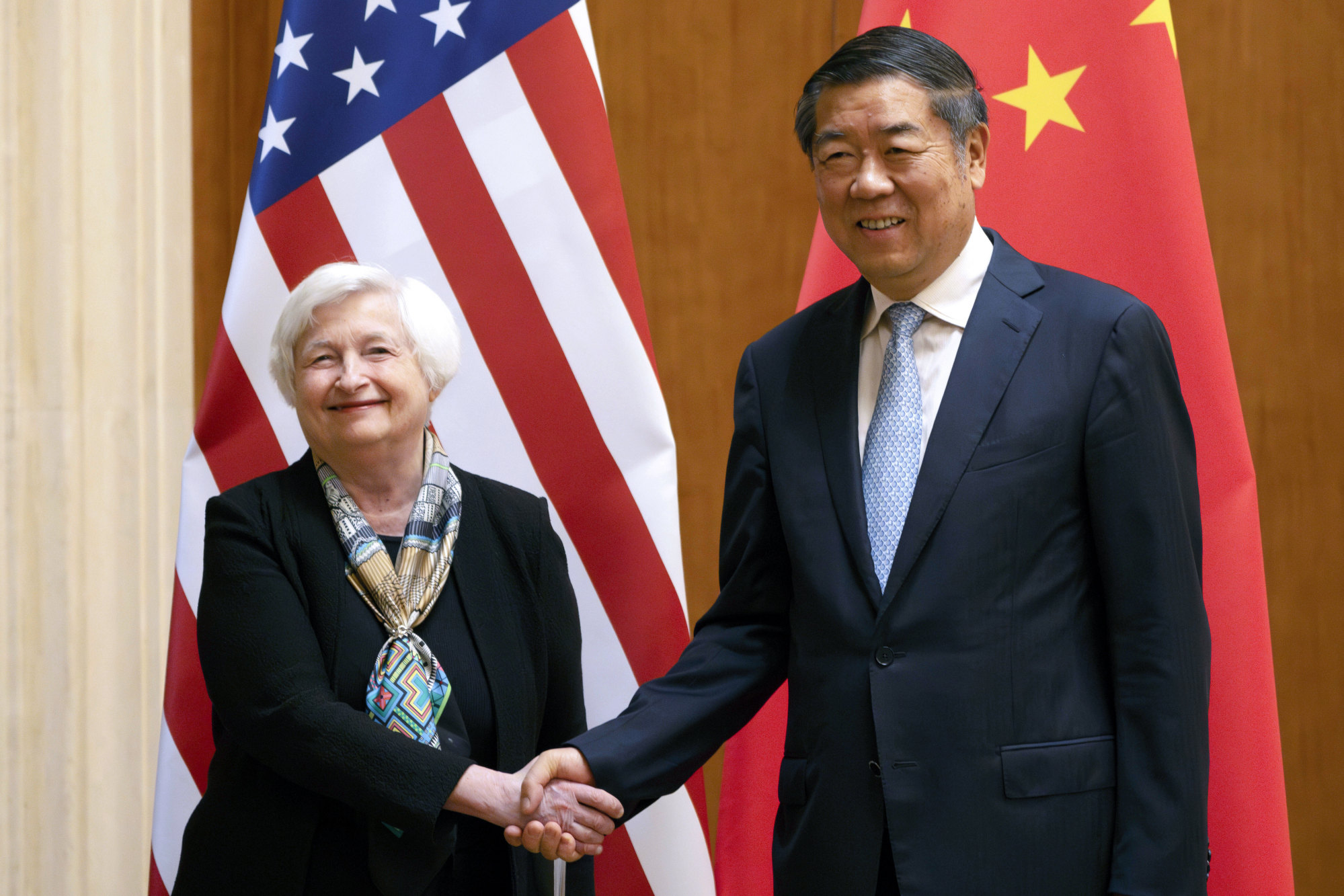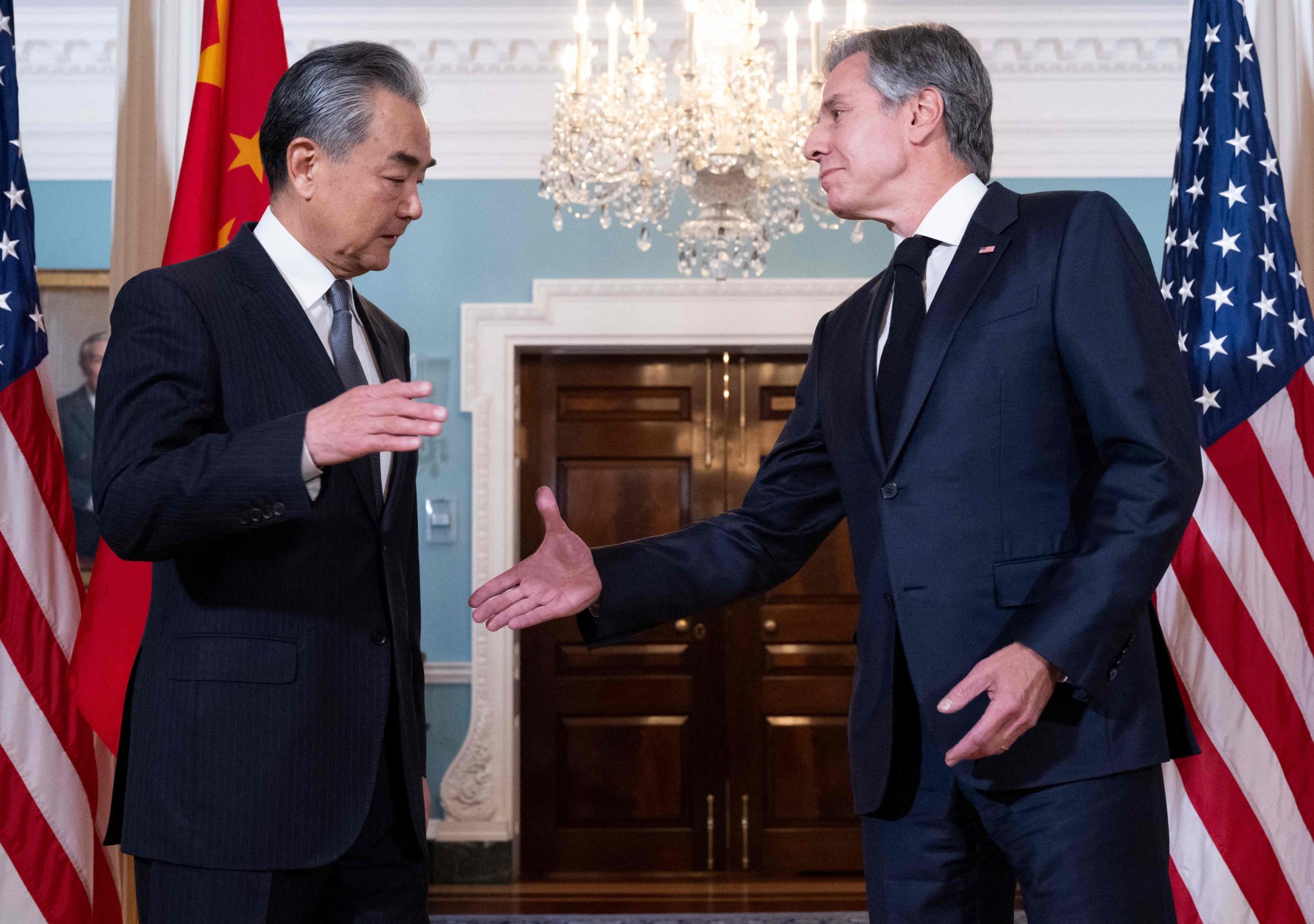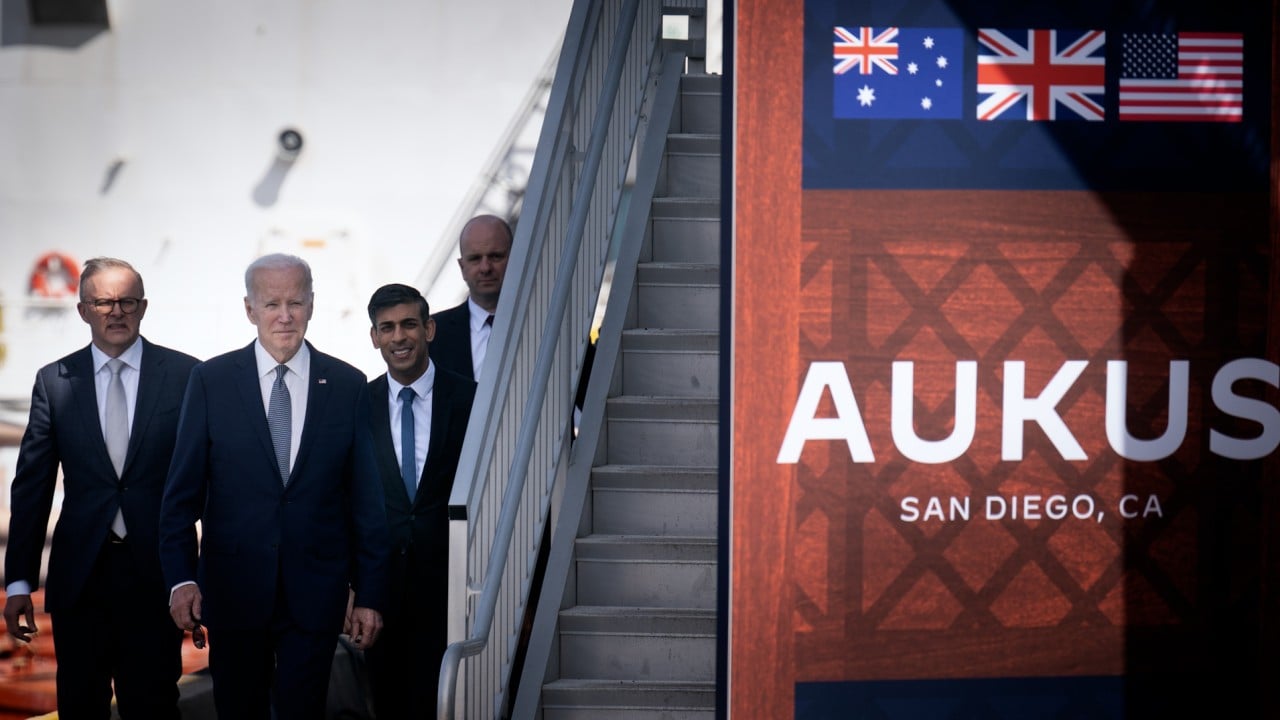China-US relations: Xi-Biden Apec meeting the main event after diplomatic talks in the background
[ad_1]
But he cautioned that not too much should be expected from the summit and other bilateral exchanges because of structural problems and differences over the nature of the relationship – that the US aims to “outcompete” China while Beijing emphasises win-win cooperation.
“The two sides also need to rebuild trust and take specific measures to manage the relationship beyond just talking,” Zhu said.
Don’t count on Xi-Biden meeting to yield results, provided it happens: analysts
Don’t count on Xi-Biden meeting to yield results, provided it happens: analysts
Beijing has offered little detail about the one-day talks that were led by Sun Xiaobo, who heads the Chinese foreign ministry’s arms control department, and Mallory Stewart, the US assistant secretary of state for arms control. US officials said it was the first bilateral talks specifically on nuclear weapons since the era of former president Barack Obama.
The State Department described the discussions as “candid and in-depth” and unnamed officials told Reuters the meeting itself was “constructive” and represented progress, although Beijing “did not respond substantively” to Washington’s concerns about China’s nuclear transparency and its fast-growing nuclear capabilities.

On November 3, both sides also had “substantive, constructive and candid” discussions in Beijing about the situation in the disputed South China and East China seas, which observers said was “dangerous” amid a row over who should be responsible for heightened maritime tensions. The talks were led by Hong Liang, director general for the ministry’s boundary and ocean affairs department, and Mark Lambert, the State Department’s China coordinator and deputy assistant secretary for China and Taiwan.
While the US raised China’s “dangerous and unlawful actions” in the South China Sea, including “its unsafe intercept” of a US warplane on October 24, Beijing voiced “serious concerns” over US military presence and what it said was meddling in the region, and frequent close reconnaissance missions targeting China.
No apparent progress was reported after the heated exchange of views, despite a principled agreement on the need to manage the maritime situation to avoid miscalculation and misunderstanding, while also exploring the possibility of cooperation, according to the Chinese readout.
It came after a department-level engagement on foreign policy planning in Vienna on November 1 between Miao Deyu, head of the ministry’s policy planning department, and Salman Ahmed, director of the US Secretary of State’s policy planning staff.
According to Lu Xiang, a research fellow on US studies at the Chinese Academy of Social Sciences, engagements at the working levels are usually aimed at setting the agenda for the higher-level meetings, or working out details to implement high-level consensus.
“There is little information about those working-level engagements. But a key job for department-level officials is to iron out details and pave the way for further engagements between their superiors and leaders,” he said.
While it was highly unlikely there would be breakthroughs from exchanges at the working levels, such engagements were still important to help improve the atmosphere and create favourable conditions for the Xi-Biden summit, he said.
As giant pandas exit Washington, will US-China diplomacy retreat too?
As giant pandas exit Washington, will US-China diplomacy retreat too?
But he played down the importance of the nuclear talks, which he said were more about non-proliferation than arms control.
“There are no negotiations on arms control, just talks about nuclear non-proliferation. It is a misunderstanding by the outside world,” he said, adding that both sides would probably reaffirm their respective nuclear policies and principled positions.
Lu’s explanation seemed to be in line with what US officials said after Monday’s nuclear talks about China’s continued refusal to discuss arms control matters separate from other contentious issues.
From China’s perspective, the fate of the San Francisco Apec summit largely hinged on how much Washington was willing to heed Beijing’s concerns and deliver meaningful results ahead of Xi’s coming visit, Lu said.
“There is no problem for China to open up to the US. So the crux now is the US needs to demonstrate its sincerity and do something to smooth ties, but we have yet to see any of that. While it is unrealistic to expect a major improvement in Sino-US relations, practical results are still achievable,” he said.
For instance, the US could steadily lift the tariffs on China it has imposed since the trade war began in 2018, something Beijing had requested for years, Lu said.
“The Bali consensus [reached during a meeting between Xi and Biden in October last year] was undermined mostly by the US side over the past year. Now, as China and the US patch up their ties, we need some sort of a breakthrough and hope to see some tangible and visible results,” he said.
After meetings with US Secretary of State Antony Blinken and National Security Adviser Jake Sullivan, Foreign Minister Wang also admitted that many challenges had to be resolved to make the Xi-Biden summit a success.

Li Mingjiang, associate professor of international relations at Singapore’s S. Rajaratnam School of International Studies, also spoke highly of the resumption of working-level exchanges which had been largely suspended after former US House speaker Nancy Pelosi’s visit to Taiwan last year.
The intensity of the exchanges was clearly related to Xi’s US visit, as both sides need consensus and results to justify resuming top-level engagements and stabilise bilateral ties, he said.
“The two sides have some consensus on some of the lowest common denominators. The US does not want to see further deterioration or any substantial improvement in bilateral ties. It has shown a clear willingness to stabilise bilateral relations, which is why the US is trying its best to facilitate Xi’s visit,” Li said, adding Beijing also wished to improve Sino-US relations.
Li said he was “cautiously optimistic” about the Xi-Biden summit, but said expectations should not rise too high.
“Although China and the US still share many common interests, especially when it comes to global issues, there is little chance of substantial progress and most of them may be principled consensus at best,” he said.
Will Xi-Biden meeting at Apec be the crest of a wave for US-China relations?
Will Xi-Biden meeting at Apec be the crest of a wave for US-China relations?
Washington is unlikely to change its policy on trade, hi-tech wars or containment of China, but China too is unlikely to change its high-pressure posture in the South China Sea and on the Taiwan issue, or become more transparent and cooperative on nuclear issues, according to Li.
“However, Sino-US relations will be stable for a period of time, with more emphasis on cooperation,” Li said.
Sourabh Gupta, a senior policy specialist with the Institute for China-America Studies in Washington, said intense diplomatic engagements were a welcome development, which both sides would like to project as a successful outcome of the Biden-Xi meeting.
“Surprising, because the range is broad and rich and these are over and beyond the discussions on the finance and commerce tracks,” he said.
“Both sides were committed to following through early in the year on their Bali consensus, and the fact that the [balloon] incident derailed the process by just four months attests to the depth of their consensus. There would not have been the need to compress as many meetings as they are doing right now,” he said.
He said the real problem lay at the American end. “The Biden administration was too craven to get ahead of domestic political sentiment and engage China across the foreign policy spectrum. Besides, it wanted to ‘invest, align and compete’ first before engaging Beijing,” Gupta said.
“What has taken place over the past six months is ‘process’ in the form of establishing working groups across a range of issue areas. Up to a point, process is in itself progress. But at the Biden-Xi summit, ‘process’ must deliver real ‘progress’ – as in tangible deliverables.”
Xi expected to speak at dinner for US business executives on Apec sidelines
Xi expected to speak at dinner for US business executives on Apec sidelines
Gupta said a joint statement out of the Xi-Biden summit, instead of merely a joint press release, would be the most substantive achievement for both sides.
“As far as breakthroughs on major or sensitive issues, like the South China Sea, Russia-Ukraine, Gaza-Israel, technology controls, etc, the gaps are unbridgeable. The best that can be hoped for is that one side will not spring a nasty surprise on the other, and that they will keep the other side apprised of key decisions taken,” he said.
[ad_2]
Source link






